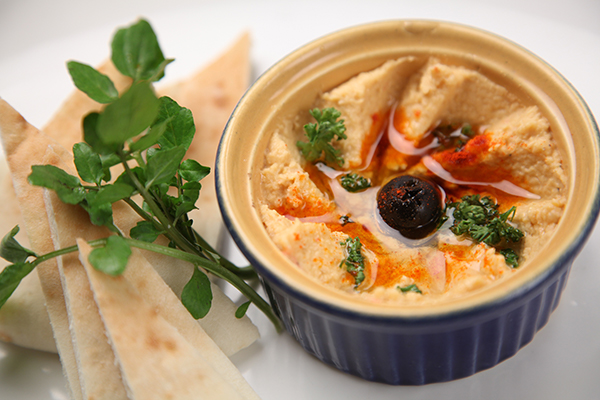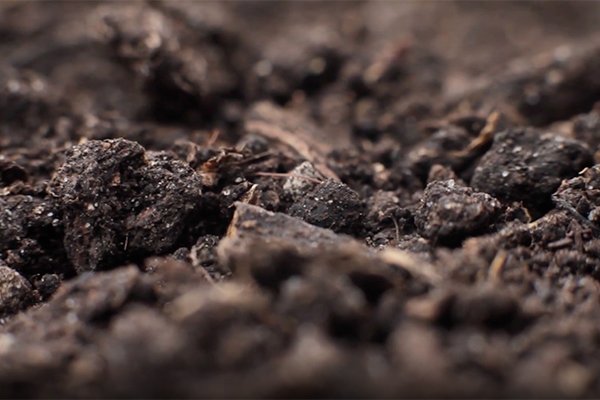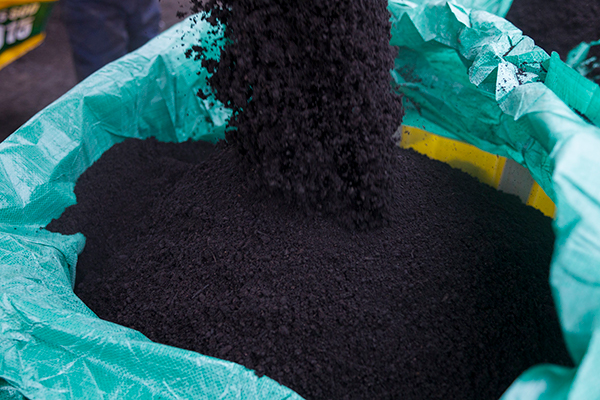Humus: What It Is and Why It’s Good?
Hummus is a dish from the Middle East made of cooked chickpeas and blended with tahini, lemon juice and garlic. You can add other ingredients in for different flavours. Hummus is delicious, especially when served with warm pita bread… But it’s not the same thing as humus, which is only found in healthy soil.

What is Humus?
Humus is a major part of the circle of life. When something dies – whether a plant or an animal – it gradually decomposes into its most basic chemical elements with the help of microorganisms. Organic matter, which many gardeners understand is beneficial, is made up of these decomposing “dead things”. Bacteria are essential to everything in nature. Their importance is especially evident when breaking down this organic matter, a process called humification.
What’s left behind afterwards is a thick, spongy brown or black substance called humus. It contains a ton of essential nutrients, but the most important one is nitrogen. As we know, nitrogen is a key element that plants use to help form new roots and to make seeds, fruits and flowers. Earthworms and subterranean insects then help by mixing nutrient-rich humus with other minerals in the soil.

Humus is also useful because of its texture. When it mixes with other soil components, it allows air and water to travel through the soil and access your plant’s roots, which is essential for growing healthy plants.
We Still Don’t Know Everything About Humus…
Despite humus being very important, scientists still don’t fully understand it. Current research suggests it might help with things like preventing diseases in plants, and helping make soil more fertile. It’s quite possible there’s even more to it than we realize! The long and short of it is that humus is like a natural super fertilizer for your lawn and garden, and microorganisms are necessary to produce humus.
Soil with humus is only available on the top 4 to 12 inches (or 10 to 30 centimetres) of Earth’s upper crust, meaning that horticulturalists don’t necessarily have to dig deep to find treasure.

Our Black Garden Soil Contains Microorganisms
In fact, you can get that richness delivered right to your door with BigYellowBag Black Garden Soil. Our soil contains humus, organic matter and essential nutrients. All these plant boosting compounds come from our premium mixture of compost, manure, peat loam and black loam. Loam is made up of the three soil types (sand, silt and clay) in the perfect ratio. This allows the soil to retain the right amount of moisture for proper plant growth, while also draining well. Our Black Garden Soil is incredibly beneficial to growing all plants and we know you’ll love it!

I have used the black garden soil for over 4 years, every spring the soil in my garden is just as dry and fine as when I started bying the good soil. Any recommendations? I live in west jordan where the soil is very clay’y .
Hey Maria! Thanks so much for your comment, and I’m sorry to hear your soil seems to be dry coming out of winter. Your local BigYellowBag supplier, BioGrass, will be able to provide some more specific recommendations for your region and you can give them a call at 801-562-9090. Do you mix our Black Garden Soil with your native topsoil when topping up your garden beds? It can help with erosion resistance and moisture retention if you mix your Black Garden Soil thoroughly with some of that native clay soil. Let me know if you have any further concerns, and happy gardening!